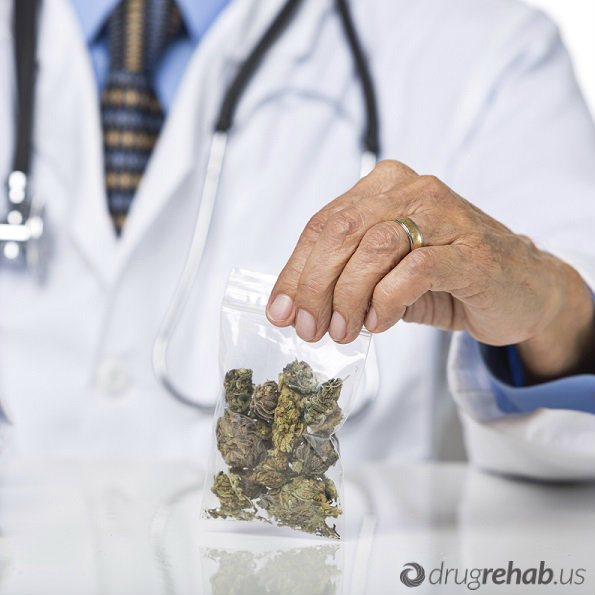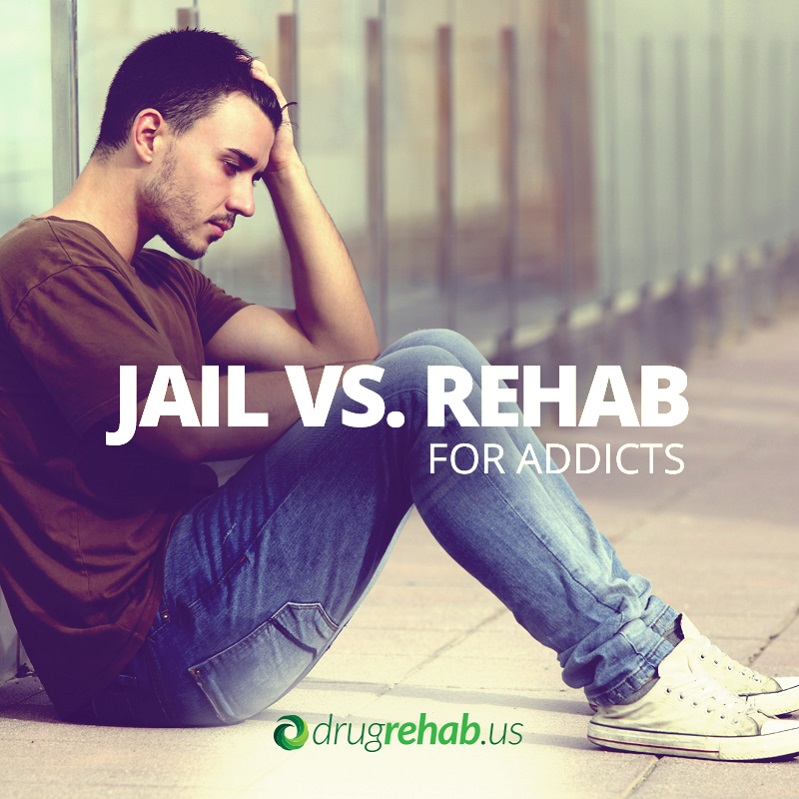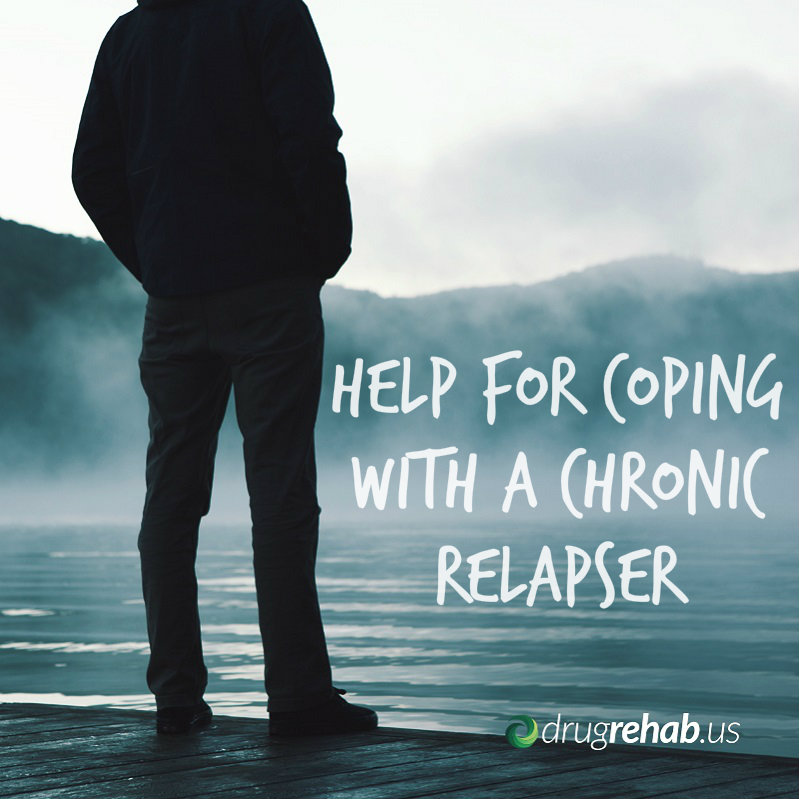05 Jan / 2015
Can Opioid Maintenance Therapy Help Prevent Hepatitis C?
Opioid maintenance therapy is the term used to describe the ongoing use of an opioid-based medication as a treatment for people recovering from uncontrolled opioid addiction. While doctors often use a medication called methadone in this form of therapy, they can also use a generally safer medication called buprenorphine.
In a study published in October 2014 in the American Medical Association journal JAMA Internal Medicine, a team of American researchers assessed the potential role of opioid maintenance therapy in preventing the spread of hepatitis C infections among people who use injection drugs.
Opioid Maintenance Therapy
Opioid-based medications are commonly used to help people who enter treatment for an addiction to heroin, prescription opioids or other opioid substances. These medications are useful in two treatment contexts: opioid detoxification and opioid maintenance. During opioid detoxification, doctors temporarily use opioid-based medications to help people in treatment avoid the potentially severe, relapse-promoting effects of opioid withdrawal.
 During opioid maintenance, doctors use controlled doses of an opioid-based medication as a longer-term, safer alternative to the uncontrolled substance intake that characterizes opioid addiction. Some people receive opioid maintenance therapy for a few months, while others receive the therapy on an ongoing basis.
During opioid maintenance, doctors use controlled doses of an opioid-based medication as a longer-term, safer alternative to the uncontrolled substance intake that characterizes opioid addiction. Some people receive opioid maintenance therapy for a few months, while others receive the therapy on an ongoing basis.
The medication most associated with opioid maintenance therapy is methadone, a fairly powerful opioid substance only available in the U.S. in certain facilities licensed and monitored by the federal government. However, many programs now use buprenorphine, a weaker opioid substance legal for use in a much wider range of treatment settings.
Generally speaking, buprenorphine does not come with the same potential for abuse as methadone. In addition, while people who abuse methadone can easily experience an opioid overdose, buprenorphine overdoses are relatively rare. Also, people who abuse buprenorphine have much lower chances of developing medication dependence.
Hepatitis C
Hepatitis C is the name for a viral infection that produces significant and potentially dangerous inflammation inside the liver. The same name also applies to the virus (also known as HCV) responsible for causing this form of infection. Like all viral infections, hepatitis C is contagious. In America, people who use injection drugs are the most likely population group to experience exposure to HCV. Typically, such exposure occurs during the unsanitary use of needles and syringes or other types of paraphernalia associated with injecting drugs or medications into a vein, into a muscle or under the skin. Some people develop a limited form of hepatitis C known as acute hepatitis C.
However, others develop a much more serious, ongoing form of the infection known as chronic hepatitis C. People with the chronic form of the disease can experience severe or potentially fatal health issues that include permanent liver tissue scarring (i.e., liver cirrhosis) and certain types of malignant liver cancer. Unfortunately, most initially acute cases of hepatitis C turn chronic over time.
Can Opioid Maintenance Help Prevent Hepatitis C?
In the study published in JAMA Internal Medicine, researchers from Boston University, Boston Medical Center, the University of New Mexico and UC San Francisco used data gathered from a 13-year project to help determine if injection drug users who receive opioid maintenance therapy have a lowered chance of getting infected with the hepatitis C virus.
This project included 552 young adult users who were under the age of 30 and free from hepatitis C when their participation began. Some of these participants received opioid maintenance therapy as their primary form of treatment. Others received opioid detoxification or forms of drug treatment that did not involve opioid medications. In addition, some participants did not receive any drug treatment.
Over the course of the study period, 171 of the participants were infected with HCV. After analyzing the breakdown of affected individuals, the researchers concluded that the participants who received opioid maintenance therapy had a significantly smaller chance of getting hepatitis C than the participants who went through opioid detoxification or received a form of treatment not based on the use of an opioid medication.
The study’s authors concluded that members of the opioid maintenance therapy group had a lower rate of HCV infection because they had a lower rate of exposure to the risk factors that make such an infection more likely to occur. They believe that the use of opioid maintenance therapy may substantially limit the transmission of hepatitis C among young people who consume injection drugs.
Learn More About The Different Types of Addiction Treatment
01 Jan / 2015
Am I Abusing Alcohol?
If you’ve ever thought about how much you drink, if your habits are healthy or if you abuse alcohol, you’re ahead of most people. Many people abuse alcohol but avoid thinking critically about their actions or what it means.
Do You Have A Problem With Abusing Alcohol?
It’s easier to ignore potential problems with drinking, but it can also be confusing to understand what constitutes normal drinking, alcohol abuse and alcoholism. While alcohol abuse doesn’t necessarily lead to alcoholism, it can put you on that path. Learn more about what this means and find out if you abuse alcohol.
What Is Moderate Drinking?
 There’s no hard and fast rule for what constitutes alcohol abuse, but there are guidelines for what’s considered to be moderate drinking. Some experts would say that anything over moderate drinking is abuse, while others would argue that this viewpoint is too extreme.
There’s no hard and fast rule for what constitutes alcohol abuse, but there are guidelines for what’s considered to be moderate drinking. Some experts would say that anything over moderate drinking is abuse, while others would argue that this viewpoint is too extreme.
According to guidelines set by the U.S. Department of Agriculture and the Department of and Human Services, moderate drinking for a woman is up to one drink per day and for a man up to two drinks per day.
What Are The Signs Of Alcohol Abuse?
Everyone is different and responds in varied ways to alcohol. Some people can drink more and be less affected. What’s more important than the guidelines for moderate drinking are the behaviors, consequences and motivations regarding your drinking. Look critically at your drinking habits for these signs of alcohol abuse:
- Your drinking causes you to neglect responsibilities – This could mean that you forget to pick up the kids from school or that you can’t drive them to activities because you are under the influence. Maybe you neglect to spend time with an elderly parent because you would rather be drinking.
- You drink to relax or to cope with negative emotions – Using alcohol to feel better is called self-medication and is a sign of abuse. The occasional drink after work to unwind is not usually a problem, but can be when it becomes a habit.
- You drink even when it could be dangerous to do so – For example, when you are about to get behind the wheel of your car or operate another type of machinery.
- You drink in spite of the problems it causes in your relationships – If your partner urges you to drink less and you don’t, or if you fight about your drinking patterns often, you are letting alcohol deteriorate your relationship.
- Your drinking causes legal problems – Such as a DUI or an arrest for behavior caused by being drunk.
What Is Alcoholism?
If you can identify any of the above signs in your behaviors when it comes to drinking, you’re abusing alcohol. It’s important not to confuse this with alcoholism.
Alcoholism means being physically dependent on alcohol. Alcoholics drink a lot every day. They can’t control how much they drink, even if they want to cut down. They feel physically sick if they can’t drink. There are big and important differences between abusing alcohol and being an alcoholic.
How To Change Your Drinking Patterns
Abusing alcohol doesn’t always lead to alcoholism. Most people who abuse alcohol can change their behaviors before it gets to that point. You have the ability to make changes now, for the better.
Enlist the support of a friend or partner and tell this person that you want to cut back. Come up with better ways to cope with stress, such as exercise or meditation. Set goals that are attainable and work toward them.
If you try these strategies and still find it hard to change your patterns, consider working with a therapist or counselor. With a little guidance you can learn to have a healthy relationship with alcohol.
If You Or Someone You Love Is Abusing Alcohol – Don’t Hesitate –
Call Us Now To Begin A Life Of Healing And Freedom!
29 Dec / 2014
How Many People Use Medical Marijuana?
Medical marijuana is the term commonly used to describe the plant-based drug marijuana when consumed as a treatment under the direction of a physician. Despite the known effectiveness of the drug in limited medical contexts, many researchers and public health experts express a legitimate concern that medical marijuana use may contribute to increased marijuana-related harm in the larger population.
In a study published in September 2014 in the journal Drug and Alcohol Review, researchers from the U.S.-based Public Health Institute sought to estimate how many people in California, a state with a widely-developed medical marijuana program, consume marijuana/cannabis in a medical context.
Medical Marijuana – THC And CBD
Marijuana contains two prominent active ingredients, THC (tetrahydrocannabinol) and CBD (cannabidiol). THC is largely responsible for the mind-altering effects closely associated with marijuana/cannabis use. CBD does not have any substantial mind-altering impact. Both THC and CBD have potential usefulness in a medical context.
 Scientifically supported medicinal properties of THC include nausea reduction and stimulation of appetite; other potential, less supported properties include the easing of inflammation and pain, as well as the reduction of muscle spasms.
Scientifically supported medicinal properties of THC include nausea reduction and stimulation of appetite; other potential, less supported properties include the easing of inflammation and pain, as well as the reduction of muscle spasms.
Scientifically supported medicinal properties of CBD include inflammation and pain relief, as well as seizure relief; the chemical may also help ease the severity of psychotic mental states.
Some medical marijuana growers sell products high in THC, while others sell low-THC products that rely on CBD for their effectiveness. However, without a thorough, case-by-case chemical analysis, no one can say how much of either chemical any given batch of marijuana/cannabis contains.
Among other things, this means that there is no such thing as “standard” dose of medical marijuana. For this and other reasons, the U.S. Food and Drug Administration does not recognize marijuana as a medical treatment.
In addition, federal law prohibits the sale or possession of marijuana and other forms of cannabis. Despite these facts, 22 U.S. states and the District of Columbia have laws in place that legalize marijuana/cannabis use as a treatment for certain ailments if a licensed physician issues a prescription.
Marijuana-Related Harm
Within or outside of a medical context, marijuana/cannabis use can lead to a number of significant health problems. For example, roughly 11 percent of all Americans who use the drug will eventually develop a diagnosable cannabis addiction. Addiction risks are especially elevated for people who use the drug habitually (as may be the case for medical marijuana consumers), as well as for people who begin their marijuana intake in adolescence.
Despite CBD’s potential to ease psychosis symptoms, heavy marijuana consumption is clearly linked to increased risks for experiencing psychotic episodes; in addition, regular consumers of the drug develop mental illness in general at a higher rate than the rest of the U.S. population.
Risks On Teen Marijuana Consumers
Apart from heightened risks for addiction, teen marijuana consumers have age-specific risks that include disrupted brain development, learning and memory impairment and an overall drop in intellectual skill. Physical ailments linked to marijuana use include lung infections, chronic bronchitis and heart disease.
How Many People Use Medical Marijuana?
California is one of the U.S. states that permits the sale of medical marijuana and the establishment of widely accessible dispensaries dedicated to medical marijuana distribution. In the study published in Drug and Alcohol Review, the Public Health Institute researchers used information gathered from the 2012 version of an ongoing project called the California Behavioral Risk Factor Surveillance System to estimate how many adult Californians report using marijuana in a medical context. A total of 7,525 randomly selected people took part in this phone-based project.
The researchers concluded that roughly 5 percent of California adults have used medical marijuana at least once. Demographically speaking, two groups of individuals are more likely to use marijuana in a medical context: young adults between the ages of 18 and 24 (also the group most likely to participate in recreational marijuana use) and adults with primarily European racial/ethnic ancestry.
However, medical marijuana use also occurs to some extent in every other demographic group, including men, women, people from various parts of the state, people with varying degrees of educational accomplishment and people from all other racial/ethnic backgrounds.
The study’s authors emphasize the fact that, although medical marijuana use is limited overall in California, people from all walks of life report using marijuana/cannabis in a medical context. The authors also emphasize the need to monitor the extent of marijuana-related harm in people who report using marijuana as a form of medicine. This is especially true since the availability of medical marijuana will likely increase in the future.
25 Dec / 2014
How To Cope With Protracted Withdrawal
You’ve been through rehab and counseling for your addiction. You went through the terrible symptoms of acute withdrawal during detox when you thought you would never get relief. You are in recovery now, attending support group meetings and trying to carry on with your life. You were sure that by this point in your sobriety you would be feeling better, like a whole new person.
Unfortunately, you feel terrible. You could be going through protracted withdrawal, the persistence of withdrawal symptoms after they should have cleared. Instead of giving in to the urge to use in order to find relief, work through these symptoms and stay sober.
Protracted Withdrawal
What you experience during detox is acute withdrawal. Your body reacts to the elimination of the drug or alcohol and leaves you with intense cravings and other awful symptoms. Many addicts give in during this phase, especially if they have no support to get through it. Once you have completed detox, you probably thought those feelings and symptoms were over. If they persist at a lower intensity, you could be experiencing protracted withdrawal.
Symptoms Of Protracted Withdrawal
 Symptoms of this condition have been seen with opioids, methamphetamine, marijuana, benzodiazepines and cocaine and include:
Symptoms of this condition have been seen with opioids, methamphetamine, marijuana, benzodiazepines and cocaine and include:
- Insomnia
- Depression
- Fatigue
- Anxiety
- Cravings
- Difficulty concentrating
- Memory difficulties
- Irritability
- Loss of sex drive
- Unexplained physical pains
How an addict experiences protracted withdrawal is unique, but these are some of the possible symptoms that have been recorded. You may be feeling any of these or just feeling generally bad and down.
Tips On How To Cope With Protracted Withdrawal
Talk To Your Doctor
If you still aren’t feeling well long after detox, talk to your doctor and any other health professionals with whom you are working. Your doctor can go over your symptoms and eliminate any other possible health problems that could be causing your symptoms. If your health team determines that you are going through protracted withdrawal, there are things you can do to speed up your healing process and help you get through the struggle without giving in to a relapse.
Understand It Will Not Last Forever
First and foremost, understand that it will not last forever. It may seem like it now, but protracted withdrawal will ultimately end. To assure yourself of this, read up on the subject and talk to your doctor and therapist about your concerns. If any of your symptoms are related to mental health issues, such as depression or anxiety, seek professional help. Work with your therapist or a new specialist to target these particular problems. Your doctor may also be able to prescribe medications to help. It may seem counterintuitive for an addict, but there are new developments in drugs that can help opioid and alcohol addicts in particular.
Partake In Healthy Habits
Train yourself to engage in healthy habits. Being healthy will help you feel better even as your withdrawal symptoms persist. Anything you can do to improve your physical health will help. This means getting enough sleep every night, eating a nutritious and complete diet and getting plenty of regular exercise. Social support is helpful too, so enlist a buddy to make positive health changes with you or at least to exercise with you.
Continue Addiction Treatment And Be Patient
Finally, be sure to continue with your addiction treatment. Even if you completed a lengthy stay in rehab, you know that addiction requires follow up and regular care. Go to support group meetings and continue with regular therapy sessions. Remember to be patient. You are going through a difficult time, and you probably expected to feel better by now. You will feel better. Put in the work, stay healthy and continue your treatment.
Is It Post-Acute Withdrawal Syndrome Instead? Find Out Now!
Don’t Beat Yourself Up – Everyone Is Different And Will Recover Differently!
For Additional Help – Call Us Now!
22 Dec / 2014
How To Drag A Family Out Of Denial
Denial is a powerful force, not for change, but for maintaining the status quo. We tend to think of the addict as being the one in denial, but often the people around her are also heavily in denial about the problem. Denial is something that can be useful at times. It may keep us sane in the face of something terribly traumatic. Most of the time, however, denial keeps us from making positive changes.
If you have an addict in the family and everyone else denies that there is a problem, make an effort to drag them out of their inertia to help your loved one.
Denial And Addiction
 Denial is a common feature of addiction. It allows the addict to make excuses and keep using. Addicts often keep themselves in denial and can’t get help until they fully admit to having a problem.
Denial is a common feature of addiction. It allows the addict to make excuses and keep using. Addicts often keep themselves in denial and can’t get help until they fully admit to having a problem.
On the other side of the coin are the loved ones in denial. It’s understandable to see this happen. Parents, for instance, may find it impossible to admit their child is a chronic drug user or an alcoholic. Other members of the family may be in denial because conflict within the family changes the dynamic and upsets the balance.
These family members may think they are keeping everything on an even keel, but the truth is they are only enabling the addict. They are making the situation worse and allowing the addict to continue on a downward spiral. If you are the one family member not in denial, it may be very difficult to speak up. You are the one rocking the boat and everyone else reacts as if you’ve lost your mind.
How To Break Through Family Denial
If you really care about your loved one and your family, you can try to break down the wall of denial. Remember that you may not be successful. You can only do so much, and you can’t force people to change. The best you can do is to try to change their minds, convince them to see the truth and offer your love and support to the addict.
- Show that you are serious – It isn’t easy to go against what everyone else is seeing. If you have been quietly putting a bug in the ear of anyone who will listen, it’s time to step up and take a bolder stand. Hold a family meeting without the addict. Confront your family head on and show them that you mean business. This straightforward approach may jolt some of your family members out of complacency.
- State the facts – Before you hold the meeting, prepare a list of facts. Present your family with concrete examples of how your loved one displays the signs of addiction. Lead with facts rather than emotions and they may take you more seriously.
- Remain calm and be patient – Give your family time to let the facts sink in. If no one gives up his or her denial immediately, don’t get frustrated. Let it go for a few days and then come back to family members individually. You may find that some are prepared to listen to you now.
- Offer help – When all else fails and your family remains in denial, give your love and support to the addict. You can’t always change minds, but you can offer your help. Tell your addicted loved one that you are there for her when she is ready and have resources for treatment prepared.
Denial may be powerful, but so is the care and love you have for your family. Do what you can to break through the denial, but recognize when you can do no more.
Find Out If You Are An Enabler And How To Stop Enabling Now!
Your Addicted Loved One & Your Family Are Worth It – Call Us Now For Help
Including Help Setting Up An Intervention !
18 Dec / 2014
The Fight Against Stigma For Pregnant Addicts
Babies born to addicted mothers can face a very difficult start in life. When a pregnant woman is addicted to drugs and continues to use, her baby will come into this world with drugs in his or her system. A newborn who is exposed to drugs such as opiates or narcotics while in the womb will be born with a variety of problems know as neonatal abstinence syndrome.
Drugs like heroin, cocaine or oxycodone pass through the placenta from mother to baby. During pregnancy, the growing baby develops into an addict. Upon birth, the baby is immediately craving drugs, and doctors will have to give the baby drugs that are the same or very similar to the ones taken by the mother to try to ease inevitable withdrawal symptoms. Drug-addicted babies are typically inconsolable. Symptoms of neonatal abstinence syndrome can last from several weeks to several months.
In a perfect world, women who are addicted to drugs would be able to quit using before ever getting pregnant. But it’s rarely that easy to discontinue using drugs. Even when an addict knows she is pregnant and may be harming her child, the compulsion to do drugs is still there.
Difficulties Of Being Pregnant And Addicted
 It’s a growing problem, and there aren’t easy solutions. Programs aimed at helping pregnant women overcome their drug problems are often discontinued or reduced because of funding cuts. Even when programs are available to help pregnant addicts, the women are often afraid to reach out for help.
It’s a growing problem, and there aren’t easy solutions. Programs aimed at helping pregnant women overcome their drug problems are often discontinued or reduced because of funding cuts. Even when programs are available to help pregnant addicts, the women are often afraid to reach out for help.
There is a lot of stigma attached to addiction in pregnancy. Non-addicts are quick to assume that addiction is a choice, and that an addict could stop using if she really wanted to. In some states, using drugs while pregnant may even be considered a crime. In Tennessee, for example, drug use while pregnant is classified as an assault.
When a pregnant addict is arrested instead of offered help, it gives a message to other pregnant addicts that it may be dangerous to try to get help. Many try to detox on their own, which can be extremely dangerous and even life-threatening. Fear of legal consequences, such as losing custody of their other children, stops many women from reaching out for help from medical professionals. Another fear is that the newborn baby will be taken away at birth. So a large number of pregnant addicts continue to suffer in silence.
De-Stigmatizing Addiction In Pregnancy
There are few families that haven’t been touched by addiction in some way. Yet most pregnant addicts are unsure whom it would be safe to talk to, if anyone. Many of them suffer through their entire pregnancies scared and alone. They may continue to abuse drugs because it is the only life they know, or they may try to quit drugs without help, a goal that is rarely successful.
Addiction is frequently misunderstood, and often people see it as a moral failing rather than an illness. This judgmental attitude is intensified when an unborn child may be affected.
If stigma could be removed from addiction in pregnancy, both mothers and babies would benefit. If pregnant addicts were free to seek help and know they wouldn’t be judged or condemned, they could approach motherhood with strength and courage rather than fear and shame.
When pregnant addicts avoid getting help, it is really a form of denial. Addicts and their families may try to pretend that if they ignore the problem of addiction, it will go away. Pregnant addicts learn to lie to their doctors and hide any evidence that they are actively abusing drugs.
Stigma prevents addicts from obtaining good prenatal care and results in babies who are born addicted. These babies may also be born with other medical problems. Many of these problems would be prevented if the mothers were free to get help and didn’t have to live in fear of asking for it.
Few understand the hold addiction has on people and how hard it can be to overcome the compulsion to turn to mind-altering drugs. Addiction is a disease, and women who suffer from it deserve to have options for recovery without fear of stigma or judgment. So do their unborn children.
Why Do Women Continue To Drink During Pregnancy? – Understand More About Why Woman Use While Pregnant
15 Dec / 2014
Jail vs. Rehab For Addicts
Millions of drug addicts are jailed every year in the U.S. In many of these cases, they are sentenced to jail time because of minor crimes such as possession or a third strike. Rehab vs. jail is an old debate, but one that is shifting. While the old way has been to jail addicts because they have committed crimes, advocates for addicts are changing attitudes. Jail is not a valid form of rehab and it should stop being used as such. Addicts do not come out of jail cured simply because access to drugs was restricted or cut off; it’s time to start getting addicts the help they truly need.
Can Jail Be Rehab?
 Philosophies of addiction treatment have long been punitive. Even with addicts who are not in trouble with the law, mainstream addiction care has often used punishment and tough love as a way to treat patients. This idea comes from a deep-seated belief that addiction is a moral failure and a personal weakness; that addicts have done something wrong because of an internal flaw and punishment is the way to correct it. This attitude is old and it is changing, but it still largely prevalent.
Philosophies of addiction treatment have long been punitive. Even with addicts who are not in trouble with the law, mainstream addiction care has often used punishment and tough love as a way to treat patients. This idea comes from a deep-seated belief that addiction is a moral failure and a personal weakness; that addicts have done something wrong because of an internal flaw and punishment is the way to correct it. This attitude is old and it is changing, but it still largely prevalent.
Because of this dated attitude, many addicts are sentenced to jail time instead of treatment in a rehab facility. Drug rehabilitation statistics refute this practice. Jail might work as effective rehab for a handful of addicts, but for most it simply doesn’t help. When a drug addict leaves prison, he is likely to start using again. Unless a jail or prison has a dedicated drug addiction treatment program, addicts will not be well served by spending time there.
Addicts Need Effective Treatment
No one would suggest that there should be no consequences for drug crimes, but jail time is not the most effective way to punish and rehabilitate addicts. Those convicted of minor and non-violent crimes could be sentenced to time spent in a treatment facility instead of prison. This would allow addicts to get the help they desperately need and would help them transform back to productive members of society who will be unlikely to break laws again.
One of the pros of recreational marijuana legalization that has recently been seen in Colorado and Washington is fewer drug users going to jail for minor crimes. There are a lot of real downsides to legalizing this drug, including possibly increased addiction rates, but if it means clearing prisons of non-violent drug offenders, it would be one positive outcome.
The debate over rehab vs. jail is one that should be officially closed. We know that prison time does not treat addicts and that no one is served well by jails overcrowded with minor offenders. Everyone would benefit, taxpayers and drug addicts alike, if we could send non-violent drug offenders to facilities for effective treatment.
Find Out For Yourself Or A Loved-One Which Therapy Will Work Best In – What Kind Of Addiction Therapy Do You Need? – And Break Free From Addiction Today!
11 Dec / 2014
Coping With A Chronic Relapser
Helping a loved one overcome addiction is challenging. First you have to convince her that she has a problem, which may seem like an insurmountable obstacle. Once she is ready to admit to her addiction and get help, you have to support her as she goes through rehab. Finally, your loved one is prepared to re-enter the world as a sober person in recovery. And then she relapses, again and again and again. After lending so much support, how do you help the chronic relapser in your life?
Understanding Relapse
 As someone who does not have an addiction or substance abuse problem, it can be difficult to appreciate what your loved one is going through. It may help you to feel better, and to be better able to help her, if you educate yourself about this disease. The old-fashioned idea about addiction is that the addict always has a choice and that if she fails at being sober, she is weak-willed and inferior.
As someone who does not have an addiction or substance abuse problem, it can be difficult to appreciate what your loved one is going through. It may help you to feel better, and to be better able to help her, if you educate yourself about this disease. The old-fashioned idea about addiction is that the addict always has a choice and that if she fails at being sober, she is weak-willed and inferior.
Research over the last couple of decades has changed that long-standing view of addiction. We now know that it is a chronic illness and has much in common with other chronic medical conditions like diabetes or arthritis. The most important characteristic of chronic illnesses that you must understand is relapse. Relapse is common and almost inevitable in all chronic diseases. These illnesses require lifelong treatment, and even then relapse may still occur.
Continuing Support Toward Your Loved One Who Is Relapsing
Knowing more about addiction and its chronic nature may help you to be more compassionate toward your loved one who is relapsing. Even so, it can be frustrating to see her repeatedly go back to substance abuse. You have a choice as to whether you continue to support her or not. Most addiction experts would urge you to continue to be there for her. Many addicts require several tries at rehab and focused treatment before relapses stop or become less frequent.
If you have the means to keep supporting your loved one, do so. She needs you. Help her in any way possible. That may mean helping her to pay for treatment, helping her to find new treatment programs that are more successful for her, or giving her a supportive place to stay after rehab. Just remember to take care of yourself as well. Don’t give more than you can afford to, financially, emotionally or otherwise. And make sure you are not enabling by making excuses for your loved one or providing financial help for their habit.
Walking Away From A Chronic Relapser
Your other option when coping with a chronically relapsing loved one is to walk away and withdraw your support. It seems like a harsh option, but there are some valid reasons to make this choice. If you feel completely drained, worn out or used up from helping her, you may need hiatus. Take a few weeks to heal yourself and tell her that you will support her once again, but that you need a break.
Another reason you may need to walk away, and maybe do so for good, is if your loved one is taking advantage of you and causing you harm. Maybe she is stealing from you. She might be verbally or physically abusive, or perhaps puts you or your children at risk by bringing drugs and dangerous people to your home. How you choose to cope with a loved one who can’t seem to stay sober is personal. Consider your options and make the choice that is best for you and your family. There is only so much one person can give.
Women And Men Have Unique Needs When Coping With Relapse. Check Out These Beneficial Tips To Cope With Relapse As A Woman – You Are Not Alone!


